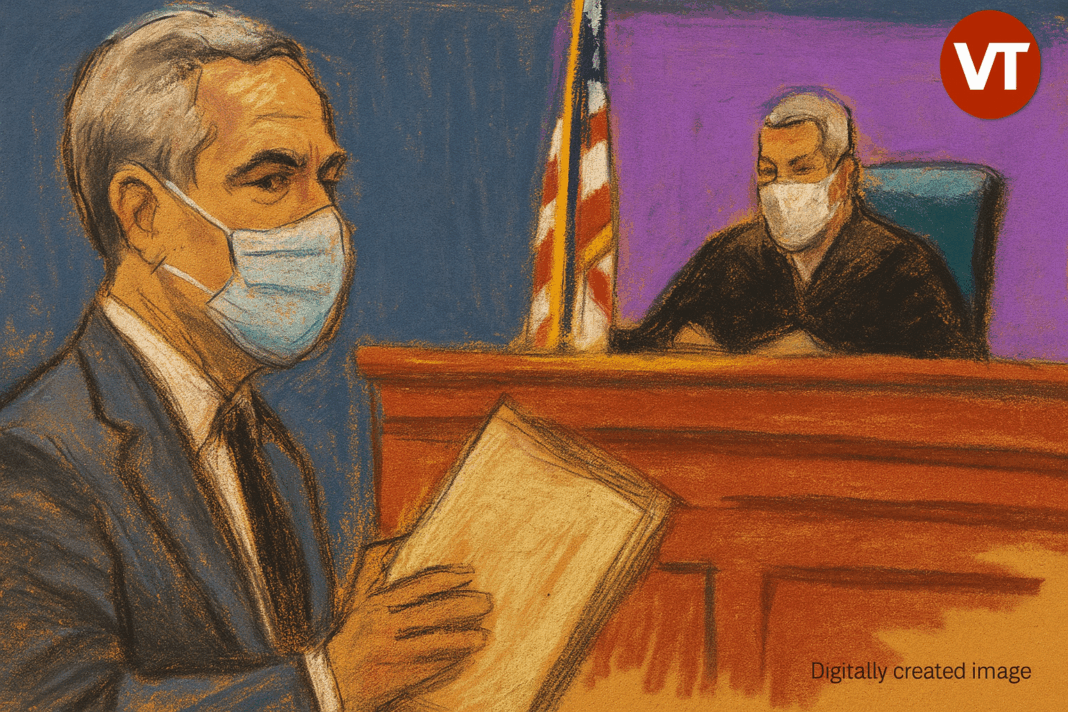- Justice Department renews efforts to unseal Epstein-Maxwell grand jury transcripts in New York.
- Judges Berman and Engelmayer requested more detailed legal rationale from prosecutors.
- A Florida court already rejected a similar DOJ request involving 2005–2007 records.
- President Trump has called for transparency amid growing public pressure.
- The House Oversight Committee is also pursuing testimony from Ghislaine Maxwell.
The Big Picture
In a late-night legal maneuver on July 29, the Trump administration filed updated motions in federal court seeking the release of sealed grand jury testimony related to the sex trafficking investigations of Jeffrey Epstein and Ghislaine Maxwell. The Justice Department argued that the public has a “compelling interest” in accessing the material, particularly in light of ongoing scrutiny over how Epstein’s case was handled by federal authorities.
According to Reuters, prosecutors submitted motions to U.S. District Judges Richard Berman and Paul Engelmayer, who are overseeing the respective cases in Manhattan. The filings seek authorization to unseal transcripts previously shielded under grand jury confidentiality rules—an area of law traditionally guarded with strict protections.
Legal Justifications Under Review
The Justice Department initially submitted a motion on July 18 to unseal the records but was met with judicial requests for further legal explanation. Judges Berman and Engelmayer emphasized the longstanding legal precedent upholding grand jury secrecy and required additional justification before moving forward. Both victims and Maxwell’s legal team were granted opportunities to respond.
Legal scholars say this case tests the limits of public interest exceptions to grand jury secrecy, a doctrine rooted in centuries-old protections for witnesses, jurors, and investigative integrity.
Push for Transparency Amid Public Outcry
The renewed motion follows backlash over the DOJ’s earlier refusal to release further Epstein-related files. That decision stirred widespread criticism from both critics and supporters of President Trump, many of whom demand more transparency in the case. Trump has since publicly stated that he directed Attorney General Pam Bondi to pursue the release of the transcripts.
The public discourse has grown increasingly tense over perceived attempts to shield prominent individuals who may have been connected to Epstein’s criminal activities. For the administration, unsealing the records may represent an effort to deflect accusations of stonewalling and to demonstrate a commitment to accountability within the justice system.
Florida Judge Rejects Similar Motion
While the New York proceedings remain active, a related DOJ motion in Florida hit a legal roadblock. On July 23, U.S. District Judge Robin Rosenberg ruled against unsealing grand jury materials from the 2005 and 2007 investigations of Epstein, finding that the government’s arguments did not meet the “extraordinary circumstances” threshold required to lift grand jury protections.
This decision was seen as a rebuke to the Justice Department’s broader strategy and underscored the judiciary’s caution in allowing political or public pressure to override legal norms. The sealed Florida records stem from Epstein’s earlier legal entanglements in Palm Beach County, where the original allegations of sex trafficking first emerged.
Ghislaine Maxwell Subpoenaed by House Panel
Separately, the House Oversight and Government Reform Committee has issued a subpoena for Ghislaine Maxwell, who is serving a 20-year sentence following her conviction for assisting Epstein in operating an underage sex trafficking network. On Tuesday, lawmakers rejected Maxwell’s request for immunity as a condition of her testimony.
According to officials, Deputy Attorney General Todd Blanche has initiated communications with Maxwell’s legal team to explore potential cooperation, particularly if she can identify other individuals who were complicit in Epstein’s operation. However, the legal and political implications of any testimony remain significant.
What Happens Next?
Even if the New York judges rule in favor of the Justice Department, any released grand jury transcripts are expected to be heavily redacted to protect victims’ identities and sensitive investigative details. Experts caution that the unsealing process could stretch for weeks or months, depending on court deliberations and responses from affected parties.
For now, the battle over Epstein’s sealed records reflects a larger debate over transparency, legal precedent, and political accountability. With mounting public interest and multiple jurisdictions involved, the coming weeks are likely to bring further developments in a case that continues to reverberate across the justice system.
Judge Denies DOJ’s Request to Unseal Florida Epstein Grand Jury Records
Trump Claims Epstein ‘Stole’ Underage Spa Workers from Mar-a-Lago
Follow Virginia Times for regular news updates. Stay informed with the latest headlines, breaking stories, and in-depth reporting from around the world.
A global media for the latest news, entertainment, music fashion, and more.














